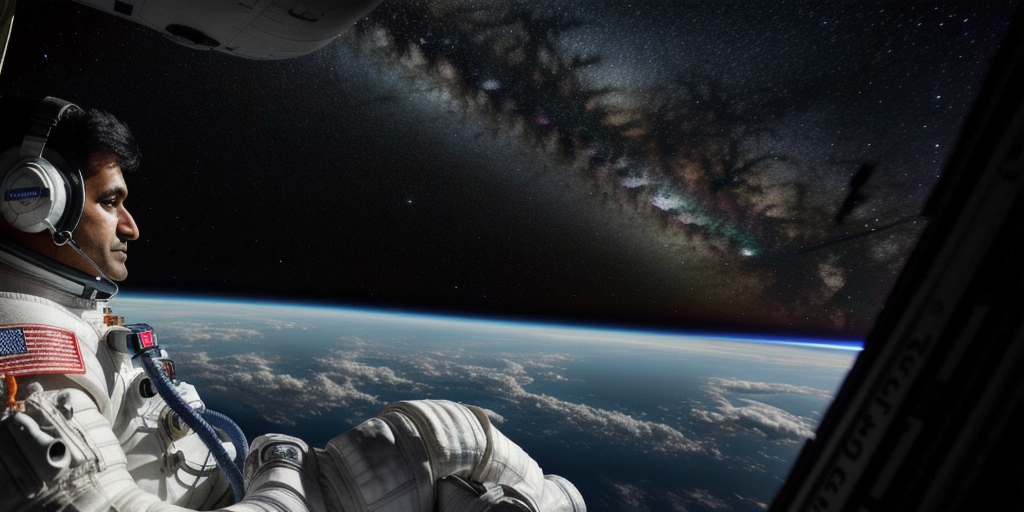
Weather Permitting, Astronaut Shubhanshu Shukla Likely To Reach Earth On July 15
How did your country report this? Share your view in the comments.
Diverging Reports Breakdown
Weather Permitting, Astronaut Shubhanshu Shukla Likely To Reach Earth On July 15
Group Captain Shubhanshu Shukla is the first Indian to visit the International Space Station. He and three crew members lifted off from the Kennedy Space Center in Florida on June 25. They docked with the space station on June 26, and, weather permitting in the descent corridor, the mission will safely splash down on July 15. This mission, named Akash Ganga, is a collaborative effort among Axiom Space Inc., NASA, and ISRO, representing a significant step forward in India’s human spaceflight ambitions. The undocking of the Crew Dragon spacecraft is scheduled for July 14, 2025, at 4:30 PM IST. Following a series of orbital maneuvers, the spacecraft is expected to splash down in the Pacific Ocean near the coast of California, USA. Upon splashdown, Mr Shuklo will undergo a seven-day rehabilitation program under the supervision of ISRO’s flight surgeons.
Mr Shukla and three crew members lifted off from the Kennedy Space Center in Florida on June 25. They docked with the space station on June 26, and, weather permitting in the descent corridor, the mission, which Mr Shukla is piloting, will safely splash down on July 15. ISRO has confirmed that the splashdown is scheduled for 3:00 PM IST on July 15, 2025.
According to NASA’s Commercial Crew Program Manager Steve Stich, the undocking of the Crew Dragon spacecraft carrying Mr Shukla and three other astronauts is scheduled for July 14, 2025, at 4:30 PM IST. Following a series of orbital maneuvers, the spacecraft is expected to splash down in the Pacific Ocean near the coast of California, USA.
In an update on July 11, Axiom Space reported that after spending 17 days living and working aboard the International Space Station, the Axiom Mission 4 (Ax-4) crew is wrapping up their research projects. Commander Peggy Whitson, Pilot Shubhanshu “Shux” Shukla, and Mission Specialists Sławosz “Suave” Uznanski-Wisniewski and Tibor Kapu have maximised their time in orbit.
Advertisement
Since arriving, they have conducted over 60 scientific research activities and participated in more than 20 outreach events, advancing research that will contribute to the future of space exploration while inspiring the next generation back on Earth.
During his stay aboard the ISS, Mr Shukla conducted seven India-specific microgravity experiments, showcasing India’s growing capabilities in space science and technology. These experiments are designed to generate critical data for future planetary missions and long-duration space habitation. Some of the experiments include:Tardigrades: Studying the survival, revival, reproduction, and transcriptome of an Indian strain.
Advertisement
Myogenesis: Investigating the impact of microgravity on human muscle cells.
Sprouting of Methi and Moong Seeds: Relevant to crew nutrition and sustainable space farming.
Cyanobacteria: Exploring the growth of two varieties for life support systems.
These experiments are now being prepared for their journey back to Earth for further analysis. Meanwhile, three additional experiments-focused on microalgae, crop seeds, and the Voyager Display-are nearing completion and will also contribute valuable insights to India’s space research portfolio.ISRO’s flight surgeons have been actively monitoring Mr Shukla’s health and psychological well-being throughout the mission via private medical and psychological conferences.
Reports confirm that the astronaut is in excellent health and high spirits, a testament to the rigorous training and support systems in place. Upon splashdown, Mr Shukla will undergo a seven-day rehabilitation program under the supervision of ISRO’s flight surgeons. This phase is crucial for helping the astronaut readjust to Earth’s gravity after spending several weeks in microgravity conditions.
Advertisement
This mission not only marks Mr Shukla as the second Indian astronaut in space, following Wing Commander Rakesh Sharma’s historic flight in 1984-but also positions India as a serious contender in the global space community.
The success of Mission Akash Ganga is expected to accelerate India’s roadmap for human spaceflight and deepen international collaborations in space science.
Advertisement
As the countdown begins for the return journey, the nation watches with pride and anticipation. The splashdown near California will be a moment of celebration for India’s scientific community and a powerful symbol of its aspirations among the stars. A grand welcome awaits Mr Shukla when he returns to India.Pallava Bagla
